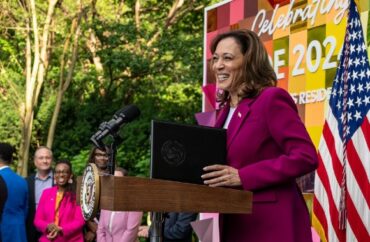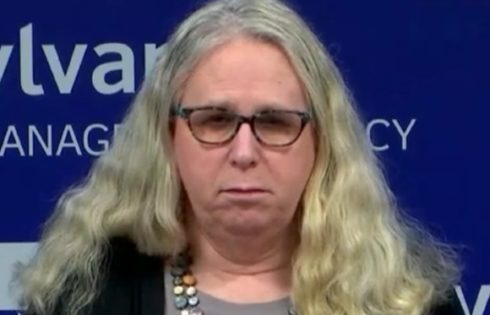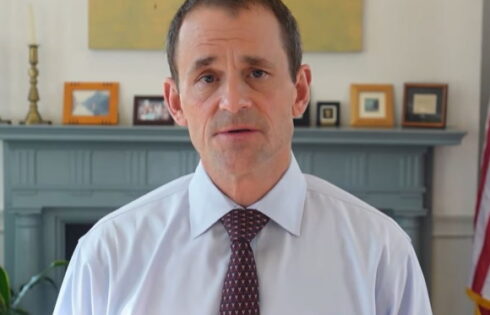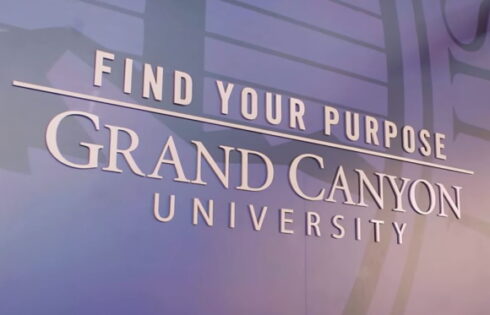
OPINION: Sexism apparently just means noting differences between both sexes
Some voters are skeptical of voting for Vice President Kamala Harris due to sexism, a trio of political scientists argued recently.
Beyond the political assertions, the underlying data used to support the claim shows an ongoing problem with academics seeing discrimination when innate differences are the better explanation.
The University of Massachusetts-Amherst scholars “found that sexism is still a powerful force in American politics.”
Professors Jesse Rhodes and Tatishe Nteta, along with doctoral student Adam Eichen, wrote in a recent Conversation essay that voters who are “sexist” are more likely to oppose Harris.
This is not a particularly astounding claim.
If someone is truly sexist against women, it logically follows that they would prefer a male candidate over a female one. But just because someone who is sexist would not vote for Harris, it does not follow that all people who oppose Harris are doing so due to sexism.
For example, they may take issue with Harris’ agenda, which includes sending law enforcement after a pro-life journalist, supporting abortion through all nine months of pregnancy, and believing individuals can have enough surgeries and take enough drugs to become the opposite sex.
The political scientists define “sexist” using three different statements and measuring agreement.
They wrote:
To measure sexism, we then asked respondents whether they agreed or disagreed with a series of three statements that express prejudice, resentment and animus toward women, or what political scientists call “hostile sexism.” The statements in the “hostile sexism” battery are: “Women seek to gain power by getting control over men”; “Women are too easily offended”; and “Women exaggerate problems they have at work.” Greater agreement with these statements indicated more sexist views.
These are observations about general patterns based on a person’s lived experiences. Noting a perceived fault in one of the two sexes is not inherently sexist.
If women are seeking to gain power, they must be doing it by gaining control over someone. I would not consider it sexist to say the reverse: “Men seek to gain power by getting control over women.”
Nor would it be sexist for a woman to offer her opinion that “Men are not sensitive enough to women’s feelings,” which is the corollary to “Women are too easily offended.”
MORE: Catholic university denies group for belief in two sexes
Notably, the second statement is fairly similar to the third, that “Women exaggerate problems they have at work.”
It would not be inherently sexist to say in the reverse, “Men do not take women’s work complaints seriously enough.”
Again, making observations about the general tendencies of the two sexes is not automatically sexist.
Women, on average, are more sensitive and emotion based, which is probably why they tend to prefer jobs like counseling, teaching, and human resources.
Men, on average, are more analytical, which is why they tend to careers in engineering, accounting, and the hard sciences.
Anyone who is married or has a close friend of the opposite sex can probably attest to these innate differences, on average.
When a woman shares a problem, a female’s intuition is to provide emotional comfort, while a male’s habit is to try to find a solution. Neither approach is necessarily wrong, as with any problem it is good to feel emotionally safe while also looking to an eventual solution.
When a car is broken it is good to acknowledge the stress it provides while also thinking about what to do for transportation until it is fixed.
Similarly, it is okay to make observations about the innate tendencies of different sexes – and doing so does not make someone sexist.
MORE: Trump ‘nostalgia’ is racist, sexist dog whistle, professor says
IMAGE: White House/Facebook
Like The College Fix on Facebook / Follow us on Twitter







Please join the conversation about our stories on Facebook, Twitter, Instagram, Reddit, MeWe, Rumble, Gab, Minds and Gettr.